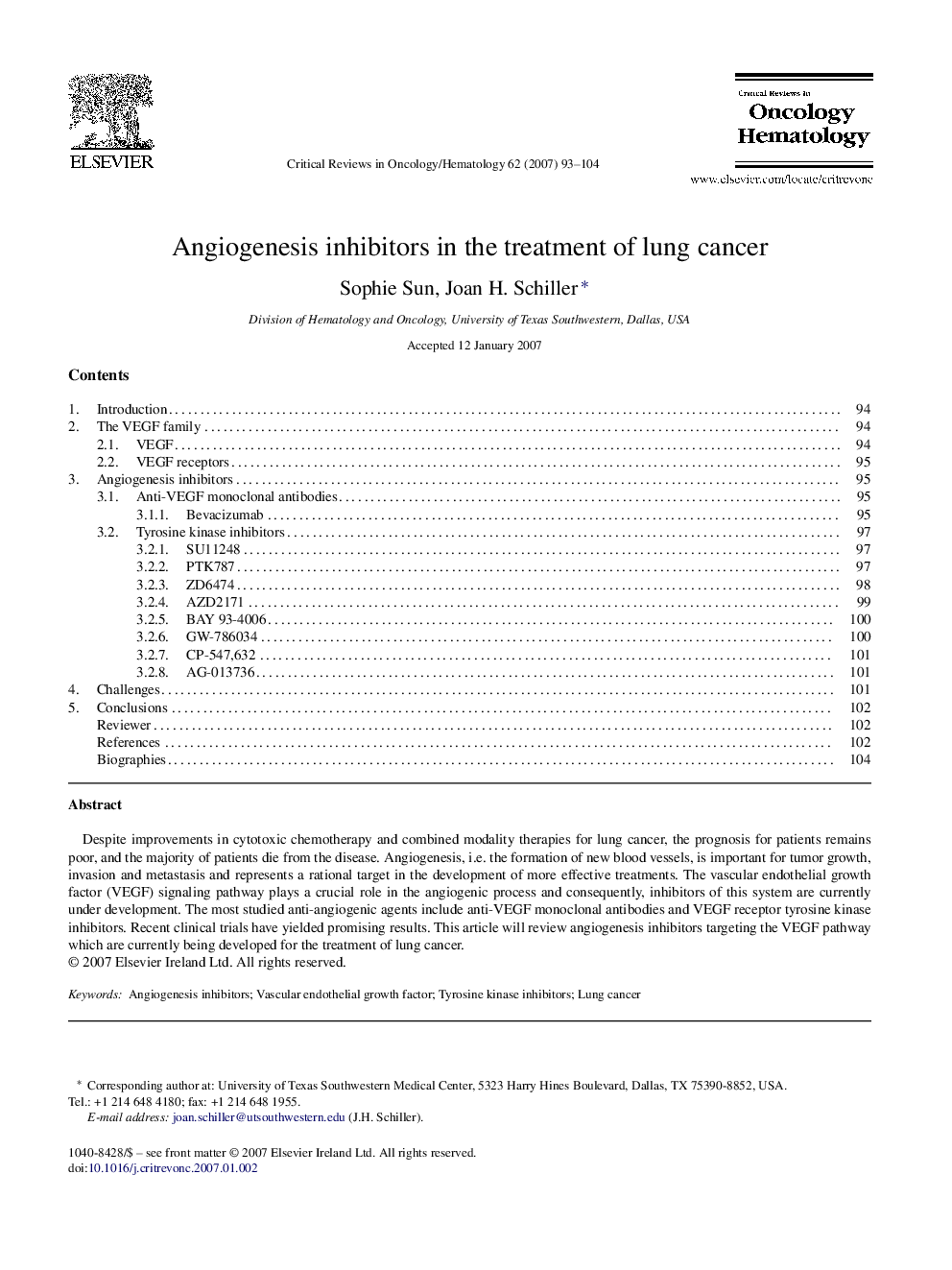| Article ID | Journal | Published Year | Pages | File Type |
|---|---|---|---|---|
| 3330104 | Critical Reviews in Oncology/Hematology | 2007 | 12 Pages |
Despite improvements in cytotoxic chemotherapy and combined modality therapies for lung cancer, the prognosis for patients remains poor, and the majority of patients die from the disease. Angiogenesis, i.e. the formation of new blood vessels, is important for tumor growth, invasion and metastasis and represents a rational target in the development of more effective treatments. The vascular endothelial growth factor (VEGF) signaling pathway plays a crucial role in the angiogenic process and consequently, inhibitors of this system are currently under development. The most studied anti-angiogenic agents include anti-VEGF monoclonal antibodies and VEGF receptor tyrosine kinase inhibitors. Recent clinical trials have yielded promising results. This article will review angiogenesis inhibitors targeting the VEGF pathway which are currently being developed for the treatment of lung cancer.
